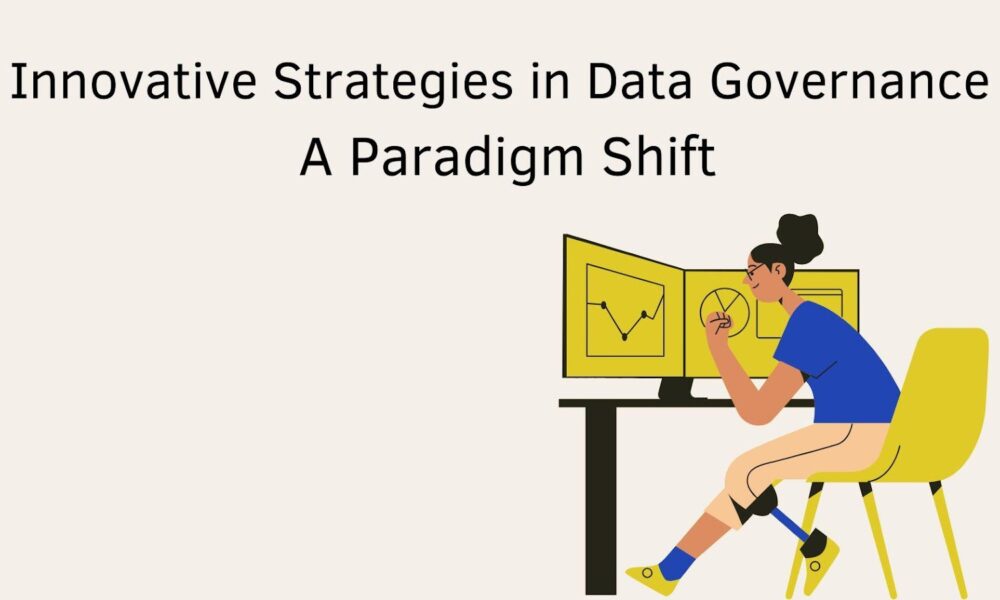Innovative Strategies in Data Governance: A Paradigm Shift

In today’s data-driven world, organizations increasingly recognize the importance of robust governance frameworks to address regulatory compliance, enhance security, and optimize operational efficiency. In his recent publication, Durga Prasad Katasani examines cutting-edge advancements in data governance, offering insights into methodologies redefining enterprise strategies. Drawing from his rich background in technology and strategy, he provides a forward-looking perspective on how organizations can adapt to the evolving demands of the data landscape.
Shifting the Governance Paradigm
Modern data governance transcends traditional compliance, serving as a strategic enabler for innovation and competitiveness. Organizations adopt platform-specific solutions like role-based access control, dynamic data masking, and adaptive authentication to address unique challenges. These frameworks ensure security, efficiency, and adaptability, embedding governance into core strategies. This approach unlocks growth, enhances resilience, and positions enterprises for sustained success in the evolving digital landscape.
Unlocking Platform-Specific Potential
Platform-specific governance strategies have emerged as a cornerstone of modern data management. Unlike generic, one-size-fits-all approaches, these strategies utilize the inherent capabilities of specific platforms to enhance security and operational efficiency. Key examples include:
- Dynamic Data Masking: Protecting sensitive information by adjusting data visibility based on user roles and context, ensuring accessibility without compromising security.
- Role-Based Access Control (RBAC): Preventing unnecessary exposure to sensitive data by aligning access permissions with organizational roles.
- Granular Auditing and Visibility: Leveraging built-in tools to monitor activities, ensuring transparency, and maintaining regulatory compliance.
Organizations can strengthen their data governance protocols by capitalizing on these platform-specific features without sacrificing performance or user experience. This tailored approach enhances security and allows enterprises to align their governance frameworks with specific operational goals.
Balancing Democratization and Security
One of the central challenges in data governance is achieving a balance between democratizing data access and maintaining robust security measures. Organizations are increasingly adopting multi-layered security architectures to address this challenge. These innovative strategies include:
- Adaptive Authentication Mechanisms: Evaluating contextual factors such as device type, location, and historical user behavior to dynamically adjust authentication protocols.
- Decentralized Security Management: Empowering localized units with greater control, enabling faster and more effective responses to emerging threats.
These advancements ensure that as data becomes more accessible, it remains secure, fostering an environment that supports innovation while safeguarding sensitive information.
Holistic Integration for Advanced Governance
Integration plays a pivotal role in the evolution of data governance strategies. Modern organizations are leveraging advanced tools for metadata management and security enhancements to create cohesive ecosystems that promote transparency and efficiency. Key benefits of this holistic integration include:
- Improved Data Lineage Visibility: This offering offers actionable insights into the origins and transformations of data, enabling better decision-making and compliance tracking.
- Enhanced Context-Aware Authentication: Dynamically adapting access levels based on user context, further strengthening security measures.
By embracing these integrated approaches, enterprises can align their data governance frameworks with broader business objectives, ensuring that governance becomes a driver of progress rather than an impediment.
Towards a Secure and Scalable Future
As data volumes and complexities grow, scalability has become critical for modern governance frameworks. Organizations adopt innovative practices to ensure their governance strategies remain efficient and adaptable. Key advancements include:
- Policy Automation: Facilitating real-time adjustments to governance policies in response to operational changes, enhancing agility.
- Predictive Analytics Integration: Utilizing artificial intelligence and machine learning to anticipate challenges, optimize resource allocation, and improve decision-making.
- Blockchain Implementation: Exploring secure and immutable frameworks for managing sensitive data and transactions, providing enhanced trust and accountability.
These innovations enable organizations to future-proof their governance frameworks, ensuring they can meet current demands while remaining prepared for emerging challenges.
In conclusion, Durga Prasad Katasani’s exploration of data governance highlights a transformative shift in how organizations approach this critical area. By leveraging platform-specific capabilities and adopting adaptive, holistic frameworks, enterprises can confidently navigate the complexities of the modern data landscape. His insights underscore the importance of viewing data governance as a compliance necessity and a strategic enabler that drives innovation, growth, and resilience.
In this era of rapid digital transformation, robust data governance frameworks are no longer optional but essential. By integrating security, efficiency, and innovation into their governance strategies, organizations can achieve sustainable success while staying ahead in an increasingly competitive environment.





